A long time has passed since the ancient Greeks began to develop as athletes, thus sowing the foundation of what we know today as the world of sport and its highest stage: the Olympic Games. However, the essence of this grandiose ceremony, which is the peaceful spirit of competition, endures to this day.
Mucho tiempo ha pasado desde que los antiguos griegos comenzaron a desarrollarse como atletas, sembrando así la base de lo que hoy en día conocemos como el mundo del deporte y su máximo escenario: los Juegos Olímpicos. Sin embargo, la esencia de esta grandiosa ceremonia, que es el espíritu pacífico de la competencia, perdura hasta hoy.
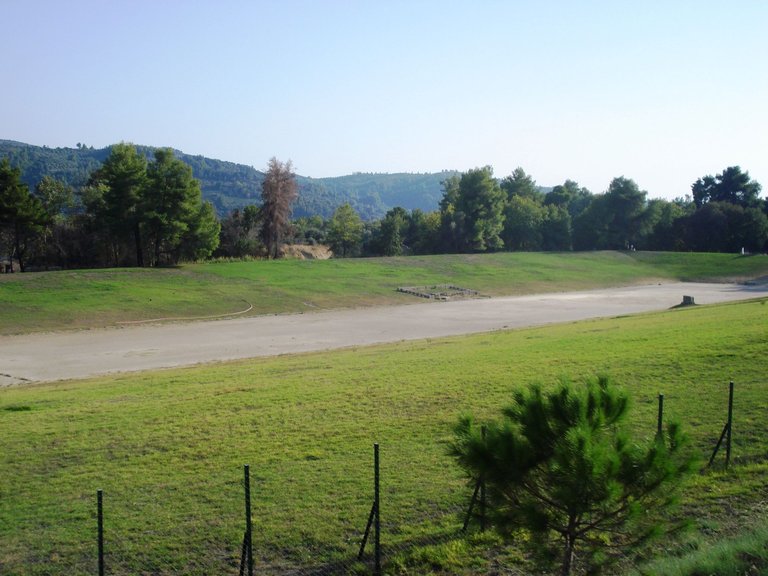
A few years ago I visited the place where they were born, and as a new edition of this iconic event is just a few days away, I wanted to share these photos and some of their history.
Hace unos años visité el lugar donde nacieron, y como faltan pocos días para que se celebre una nueva edición de este emblemático evento, quise compartir estas fotos y algo de su historia.
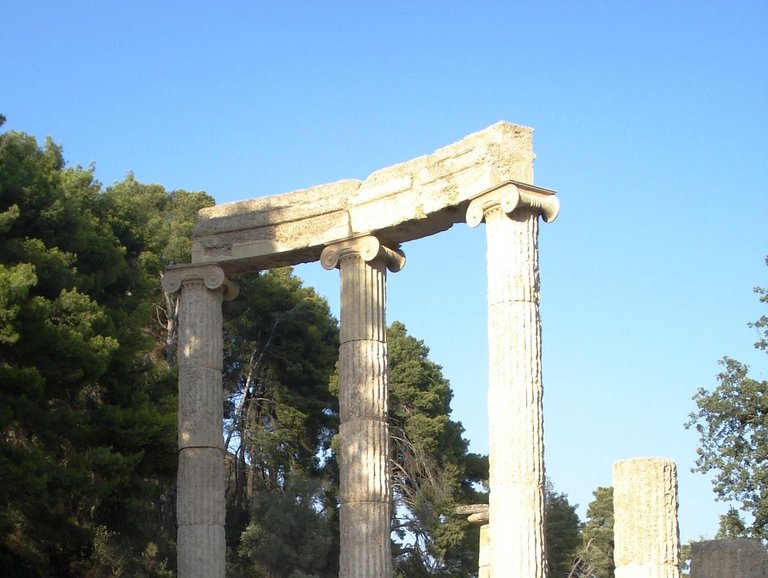
The main characteristic of the ancient Greek civilization was its competitive ideal, reflected in many representations and writings of Hellenic art. And just by looking at the statues of that era, with those perfectly toned bodies, the only thing you can conclude is that they were all athletes.
La característica principal de la antigua civilización griega era su ideal competitivo, plasmado en muchas representaciones y escritos del arte helénico. Y es que con sólo observar las estatuas de esa era, con esos cuerpos perfectamente tonificados, lo único que se puede concluir es que todos eran atletas.
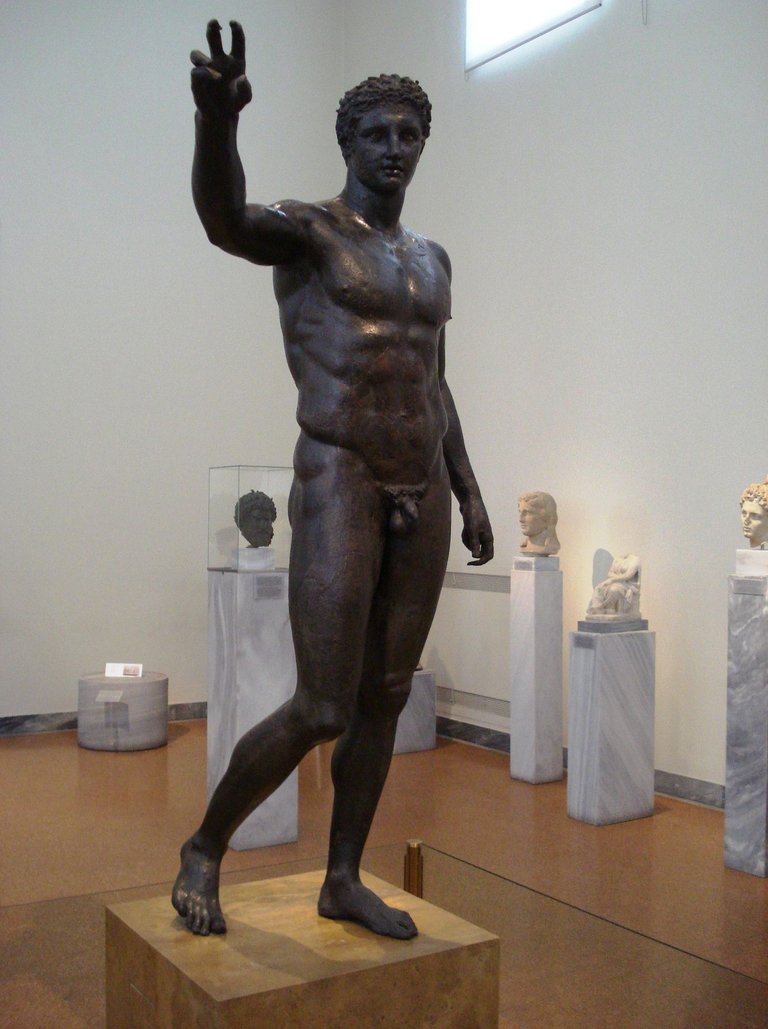
This is no exaggeration. Greece was the only sporting nation of antiquity and that is where the word “athlete” comes from, from the Ancient Greek άθλος (áthlos = competition) and the ideal it expresses. But how did this come about?
No es ninguna exageración. Grecia era la única nación deportiva de la antigüedad y de allí proviene la palabra “atleta”, del griego antiguo άθλος (áthlos = competición) y el ideal que ésta expresa. ¿Pero cómo surgió esto?
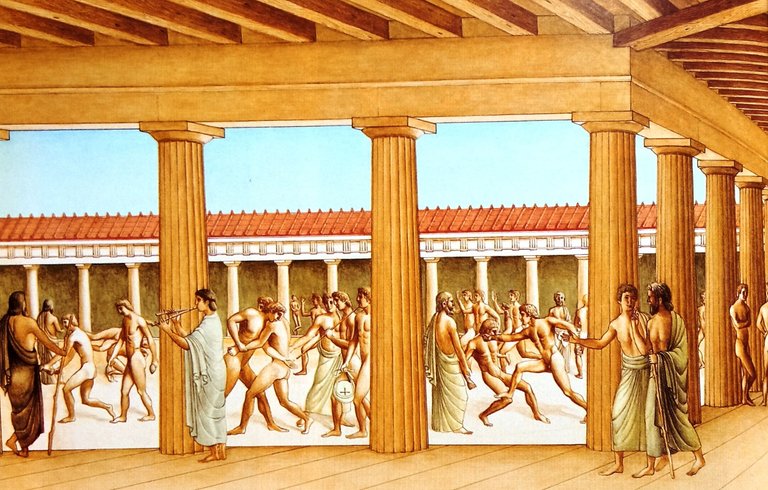
It all goes back to Greek mythology, specifically to the 12 gods who lived on Olympus, the highest mountain in Greece. That is why they were called Olympians, and their relationship with sports competitions has to do with the fact that they defeated the Titans (the first gods of antiquity) in tough battles, thus achieving predominance in the religious cult of the people, who saw them as champions and divinities more active than the previous ones.
Todo se remonta a la mitología griega, específicamente a los 12 dioses que vivían en el Olimpo, el monte más alto de Grecia. Por eso se les llamaba Olímpicos, y su relación con las competencias deportivas tiene que ver con el hecho de que ellos vencieron a los Titanes (los primeros dioses de la antigüedad) en duras batallas, logrando así predominar en el culto religioso del pueblo, el cual los vio como campeones y divinidades más activas que las anteriores.
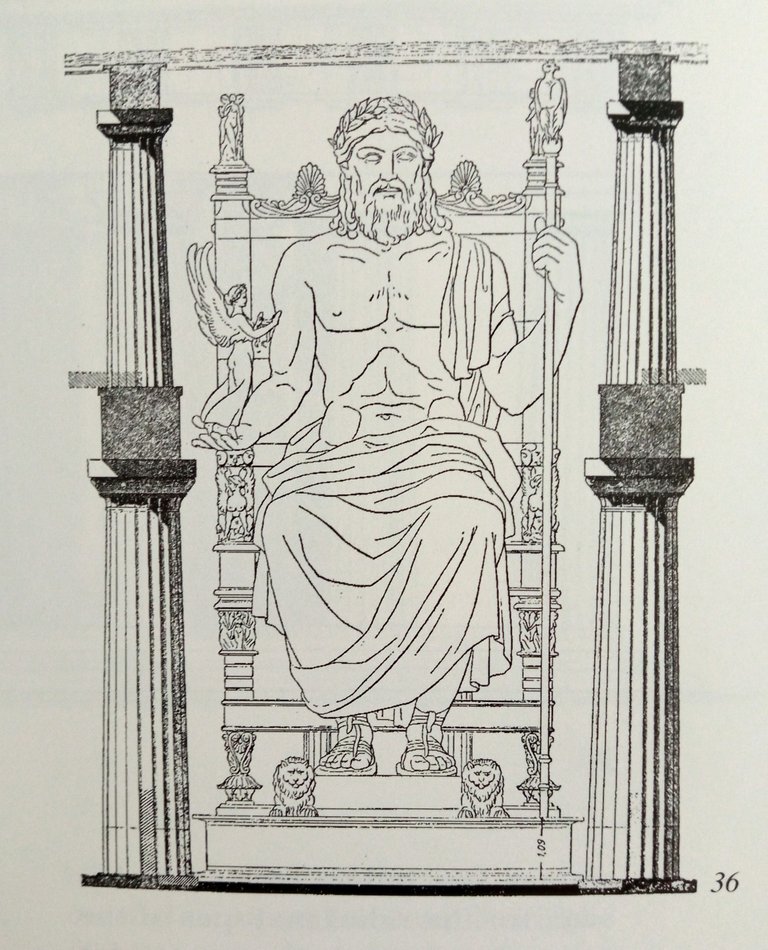
Although it is not really known exactly why the Olympic Games began to be held, what is known is that the ancient Greeks had a deep conviction that their gods inspired, established and protected the games and that they were in fact the first Olympic champions.
Aunque en realidad no se sabe con exactitud por qué razón se empezaron a celebrar los Juegos Olímpicos, lo que sí se sabe es que los antiguos griegos tenían la profunda convicción de que sus dioses inspiraron, establecieron y protegían los juegos y que además ellos eran en realidad los primeros campeones olímpicos.
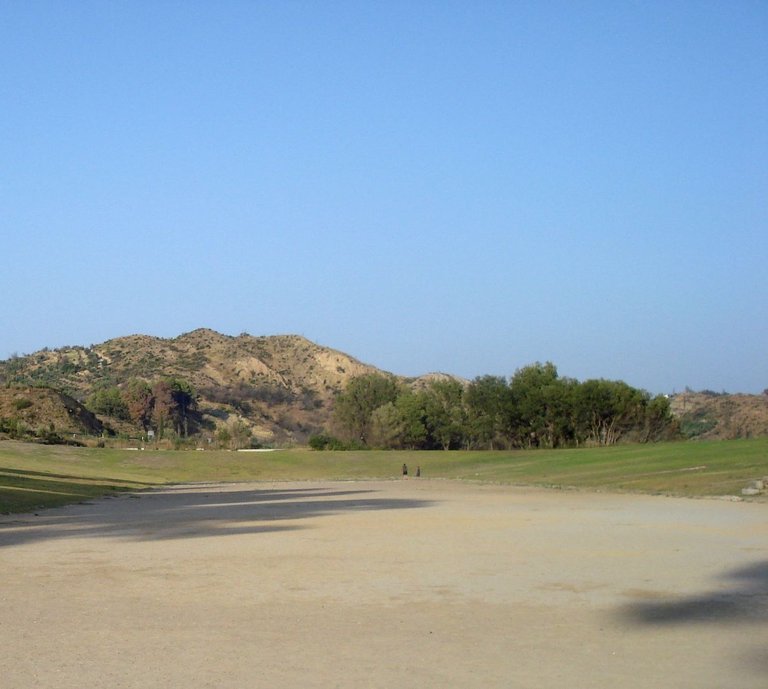
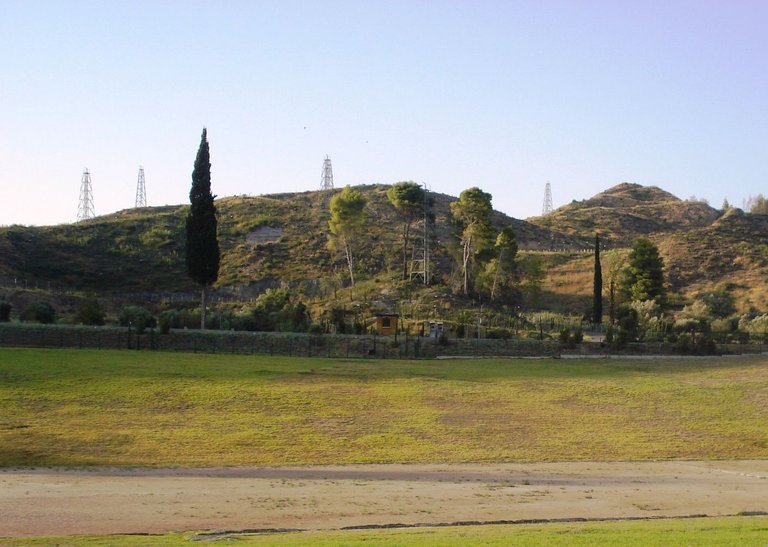
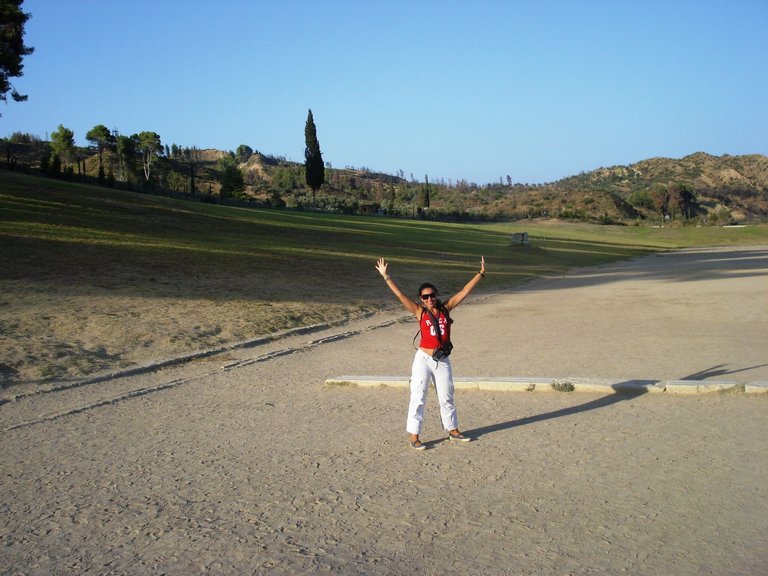
The ceremony was a politico-religious event, the gods did not compete as such, but they did dispute among themselves the dominion of a region.
La ceremonia era un evento político-religioso, los dioses no competían como tal, pero sí se disputaban entre ellos el dominio de una región.
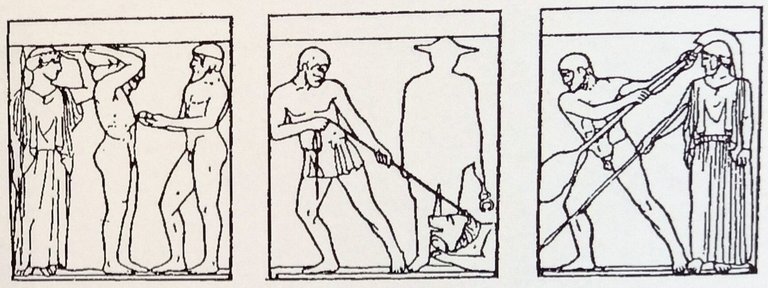
The competitions began in 776 B.C., and were held in Olympia, a valley located on the coast of the Ionian Sea, southwest of Greece, in what is now the Peloponnese region, where the main deity, the greatest of the Olympian gods, Zeus, was also worshipped.
Las competencias comenzaron en el año 776 a. C., y se desarrollaban en Olympia, un valle situado en la costa del Mar Jónico, al suroeste de Grecia, en lo que hoy es la región del Peloponeso, donde además se le rendía culto a la principal deidad, al más grande de los dioses olímpicos: Zeus.
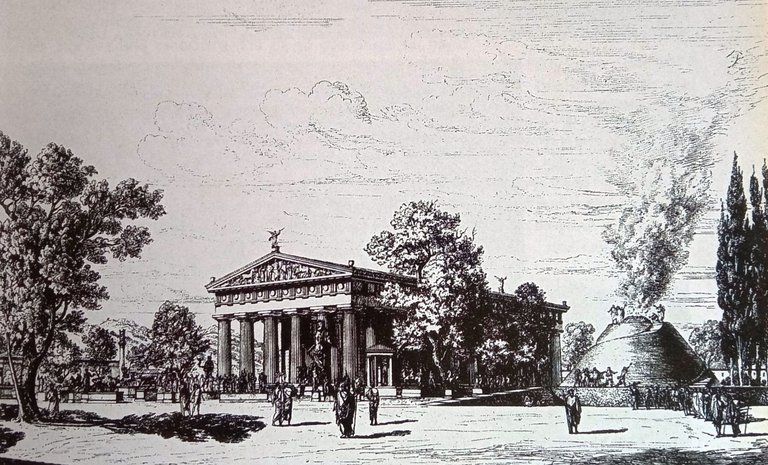
The valley of Olympia is far from the main urban centers of the country, so its location played an insignificant role both militarily and politically in the turbulent history of ancient Greece. It was therefore an ideal place to hold an event such as the Olympic Games.
El valle de Olympia está alejado de lo que eran los principales centros urbanos del país, por tal motivo su ubicación jugaba un papel insignificante tanto militar como políticamente en la turbulenta historia de la antigua Grecia. Era pues un lugar ideal para la celebración de un evento como los Juegos Olímpicos.
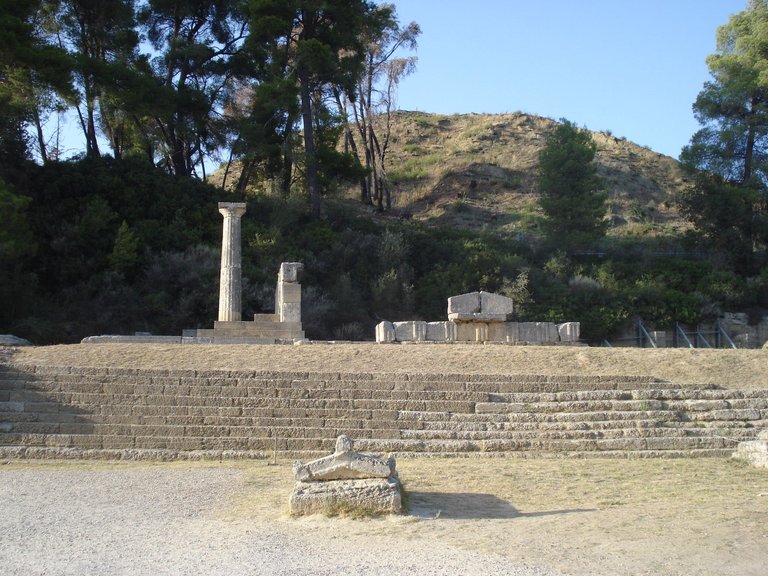
Thanks to the games, the sanctuary of Olympia acquired prestige, fame and a better architectural situation.
Gracias a los juegos, el santuario de Olympia adquirió prestigio, fama y mejor coyuntura arquitectónica.
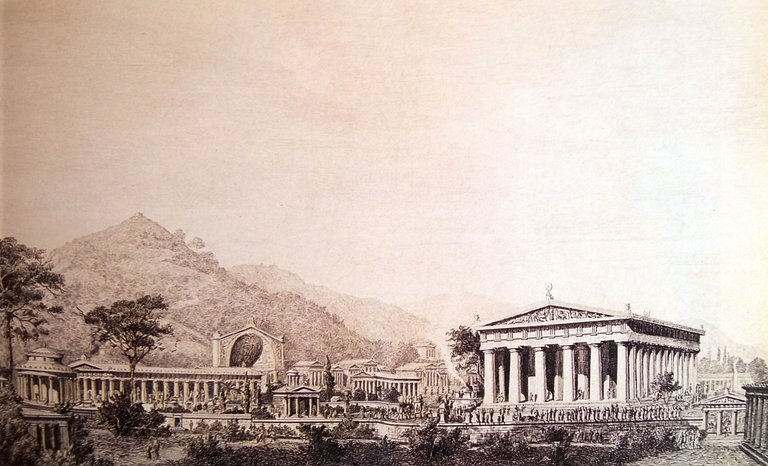
But what were the games originally like? Well, the competitions lasted five days and the disciplines were: chariot and horse racing, boxing, long jump, discus throwing, javelin, wrestling and pancratium, which was something like today's kickboxing, a combination of boxing with kicking, wrestling and a little bit of everything. The winners were rewarded with wreaths made from the branches of the surrounding olive trees. Only free Greek men could participate, regardless of what they did for a living or their status, and all competed naked. Women were not even allowed to attend.
Pero, ¿cómo eran los juegos originalmente? Bueno, las competiciones duraban cinco días y las disciplinas eran: carreras de carruajes y caballos, boxeo, salto de longitud, lanzamiento de disco, jabalina, lucha y pancracio, que era algo parecido al actual kickboxing, una combinación de boxeo con patadas, lucha y de todo un poco. A los ganadores los premiaban con coronas hechas de las ramas de los olivos que estaban en los alrededores. Sólo podían participar los hombres griegos libres, sin importar a qué se dedicaban o su estatus, y todos competían desnudos. A las mujeres ni siquiera les era permitido asistir.
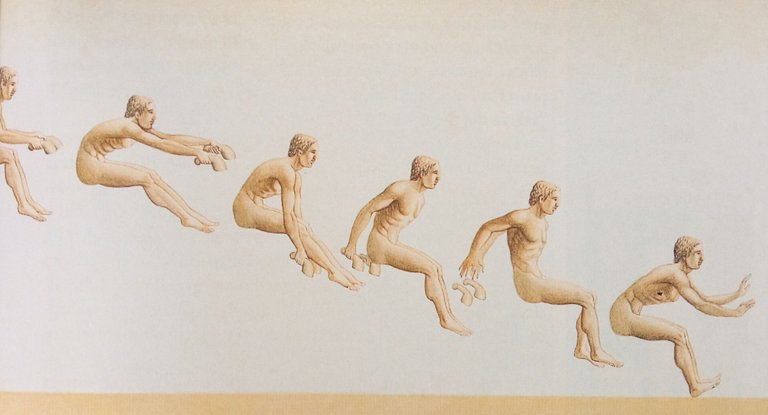
The games were held every four years, as it is nowadays, in Olympia and also in some other cities such as Delphi or Corinth, and were held from 776 BC until about 393 AD, being so important that even a truce was decreed if there was war. Then when Rome conquered Greece, the empire continued to hold them for several more centuries, although with some modifications.
Los juegos se celebraban cada cuatro años, como es en la actualidad, en Olympia y también en algunas otras ciudades como Delfos o Corinto, y se hicieron desde el año 776 a.C. hasta aproximadamente el año 393 d.C., siendo tan importantes que hasta se decretaba tregua si había guerra. Luego cuando Roma conquistó Grecia, el imperio siguió realizándolos durante varios siglos más, aunque con algunas modificaciones.
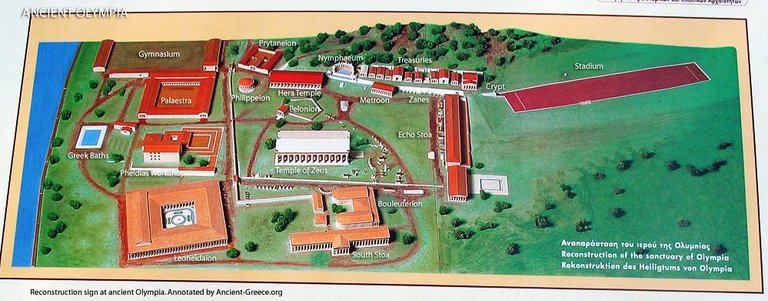
Later, the Roman emperor Theodosius I, who imposed Christianity, abolished the games as pagan, and later Theodosius II decreed that the temples of Olympia be destroyed. Earthquakes also knocked down what was left and progressively the place was abandoned and in ruins.
Después, el emperador romano Teodosio I, quien impuso el cristianismo, abolió los juegos por considerarlos paganos, y más adelante Teodosio II decretó que los templos de Olimpia fueran destruidos. También los terremotos tumbaron lo que quedaba y progresivamente el lugar quedó abandonado y en ruinas.
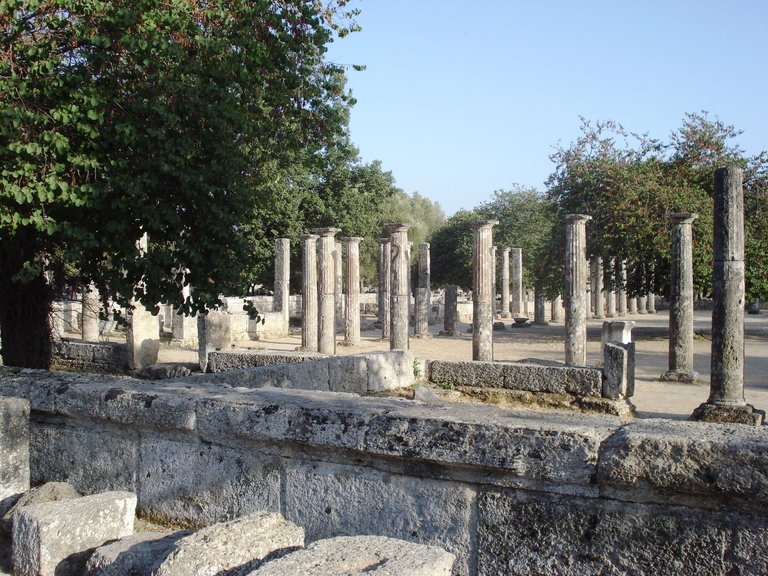
Many years passed until these ruins were identified and excavations began between 1829 and 1875, unearthing not only history but bringing back this legendary sporting competition after almost 15 centuries of interruption. Thus, in 1896, Athens hosted the first modern Olympic Games, and since then the flame is lit in the ancient sanctuary of Olympia and travels through several places until the event begins in the country that will host them.
Muchos años pasaron hasta que estas ruinas fueron identificadas y empezaron las excavaciones entre 1829 y 1875, desenterrando no sólo la historia sino trayendo de vuelta esta legendaria competencia deportiva después de casi 15 siglos de interrupción. Así, en 1896, Atenas fue sede de los primeros Juegos Olímpicos modernos, y desde entonces la llama se enciende en el antiguo santuario de Olimpia y recorre varios lugares hasta que comienza el evento en el país que los albergará.
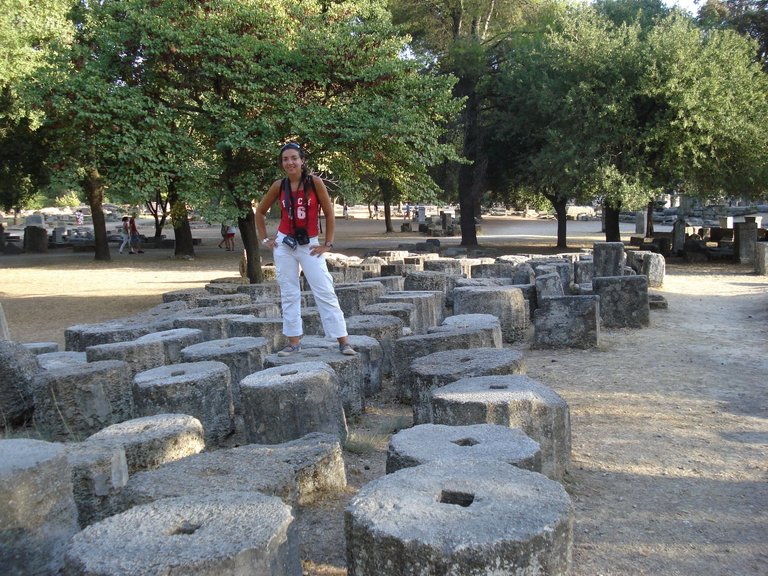
Although its splendor has disappeared and almost everything is in ruins, walking through the ancient Olympia I felt its grandeur, it is also surrounded by beautiful nature. Apart from this open-air museum, there is also a traditional museum where you can see objects of the time and jewels of Hellenistic art.
Aunque su esplendor haya desaparecido y casi todo se encuentre en ruinas, al pasear por la antigua Olimpia sentí su grandiosidad, además está rodeada de hermosa naturaleza. Aparte de este museo al aire libre, también hay un museo tradicional donde se pueden ver objetos de la época y joyas del arte helenístico.
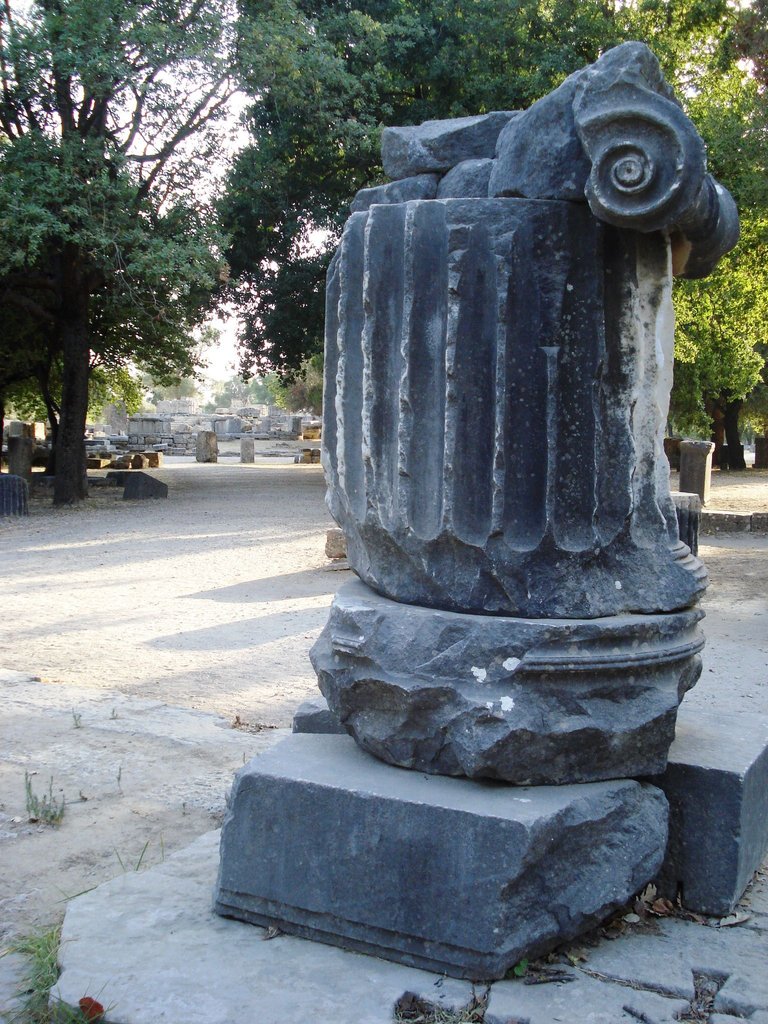
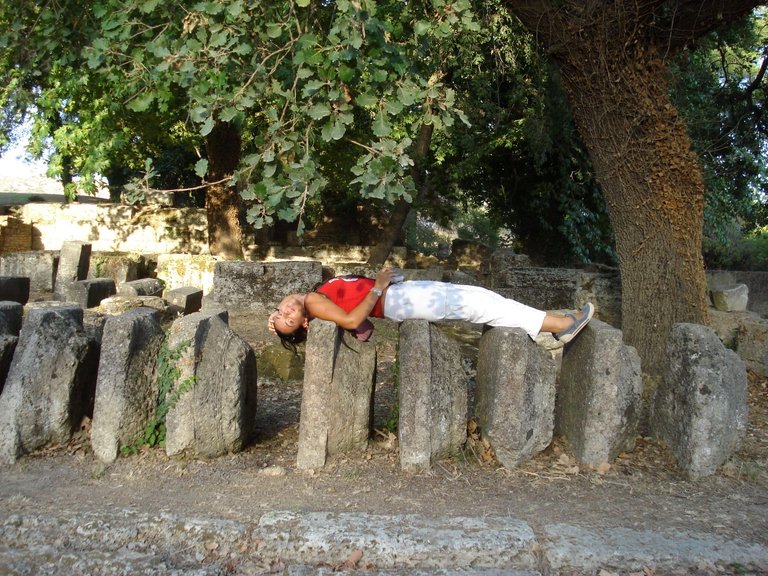
I have followed the Olympic Games since I was a child, it is an event that I never miss, especially the track and field events, so I think it is wonderful that this ancient Greek tradition has been rescued, renewed and maintained as a stage to showcase human talent.
Sigo los Juegos Olímpicos desde niña, es un evento que no me pierdo, especialmente las pruebas de atletismo, por eso me parece maravilloso que esta tradición de la Grecia antigua haya sido rescatada, renovada y se mantenga como un escenario para mostrar el talento humano.
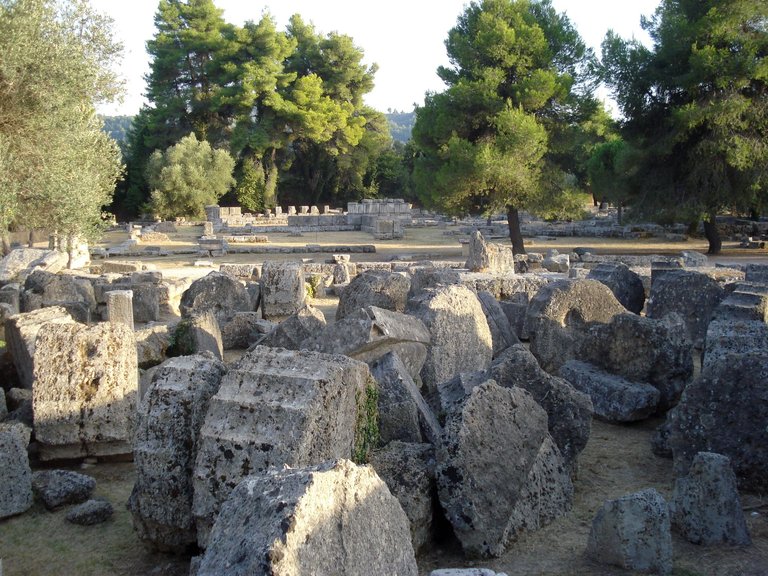
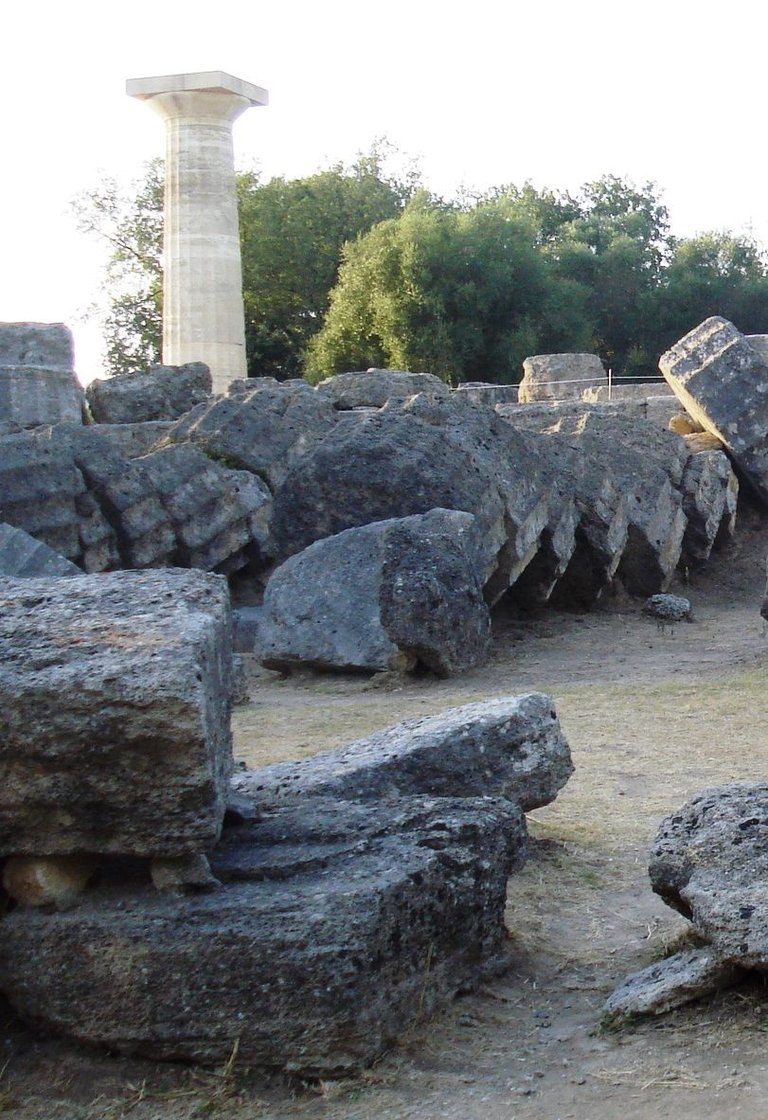
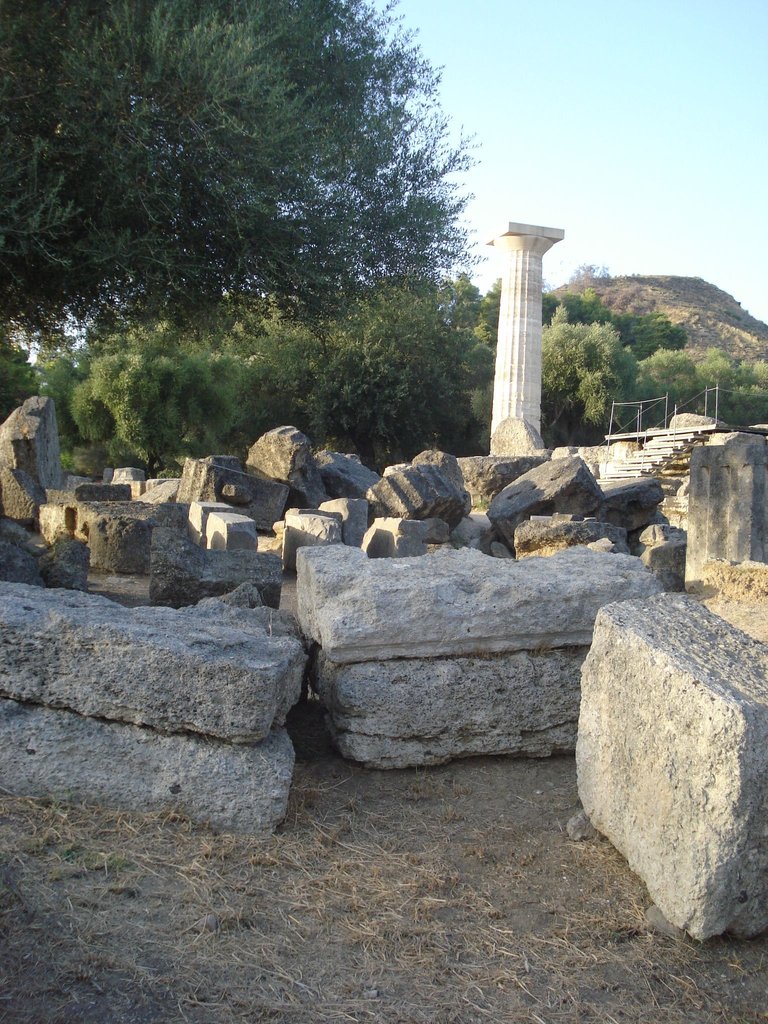
All photos are my property / Todas las fotos son de mi propiedad
Illustrations and plans taken from the publication Olympia, published by the Greek Ministry of Culture / Ilustraciones y planos tomadas de la publicación Olympia, editada por el Ministerio de Cultura de Grecia



